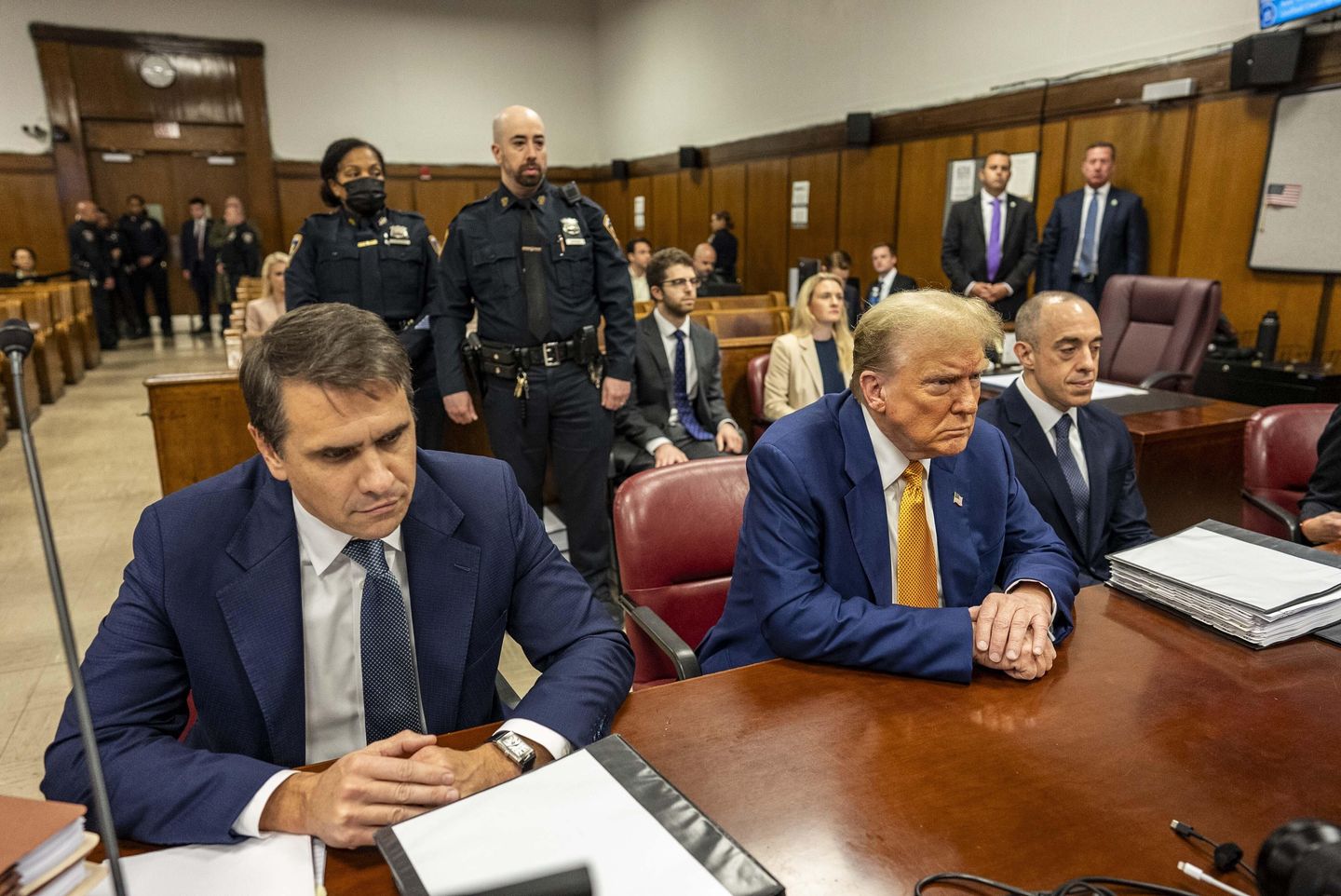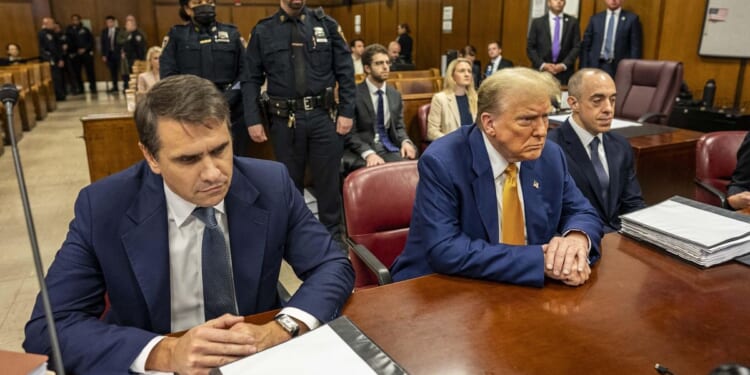
NEW YORK — Former President Donald Trump‘s lawyers on Thursday tried to put distance between the presumptive GOP nominee and confidential payments to women who alleged affairs with Mr. Trump ahead of the 2016 election, hoping to convince a New York jury that Trump lawyer-turned-accuser Michael Cohen was the central player in a scheme that resulted in criminal charges.
Keith Davidson, an attorney for adult-film actress Stormy Daniels, testified he only worked with Mr. Cohen in securing a $130,000 payment in 2016 to keep her quiet about an alleged sexual encounter from 2006.
“I had no personal interactions with Donald Trump,” Mr. Davidson said.
“Everything you know about President Trump came from either TV or Michael Cohen,” defense lawyer Emil Bove said during Mr. Davidson‘s turn on the stand.
Mr. Trump‘s lawyers are trying to separate the former president from criminal charges that allege he falsified business records to conceal hush money payments to Ms. Daniels near the 2016 election.
Prosecutors say Mr. Trump was a key player in the alleged scheme. But the defense says that nondisclosure agreements are legal and common and that Mr. Trump was busy running the country when Mr. Cohen was handling 2017 bookkeeping related to the payments.
Mr. Davidson is an attorney who often represents people trying to sell celebrity sex tapes or other embarrassing information.
Wearing a gray suit and blue tie, he testified in Mr. Trump‘s trial because he facilitated payments to Ms. Daniels and Playboy model Karen McDougal, who said she had an affair with Mr. Trump and shopped her story before the 2016 election.
From the stand, Mr. Davidson walked the jury through agreement documents that facilitated the payment and messages between him and Dylan Howard, the former editor of the National Enquirer who served as a mediator between him and Mr. Cohen.
Jurors got to see a copy of the confidential settlement that paid Ms. Daniels $130,000 in exchange for her silence about the alleged sexual encounter. It used the monikers “David Dennison” for Mr. Trump and “Peggy Peterson” for Ms. Daniels, though supporting documents used their real names.
Mr. Trump looked toward the prosecutor and jury, or straight ahead, during testimony. He conferred with his attorney and shuffled papers in front of him.
Jurors appeared attentive during the testimony and looked at evidence on monitors in front of them.
Mr. Davidson said Mr. Cohen complained on the phone in late 2016 about the lack of a role in the Trump administration and that he hadn’t gotten the “$130,000 back” after he used his own money from a home equity loan to pay Ms. Daniels.
“Jesus Christ, can you believe I’m not going to Washington?” Mr. Cohen said, according to Mr. Davidson. “I’ve saved that guy’s a— so many times, you don’t even know.”
Mr. Cohen, who no longer works for Mr. Trump, went from being his top “fixer” to an outspoken detractor.
Defense attorneys highlighted Mr. Cohen‘s disgruntlement as they tried to paint Mr. Cohen — who will be a star witness for the prosecution — as unpredictable and untrustworthy.
“I thought he was going to kill himself,” Mr. Davidson said of the late 2016 call.
Mr. Davidson verbally tussled with Mr. Bove over his memory, the nature of questions and certain legal terms, leading to awkward passages during the cross-examination.












